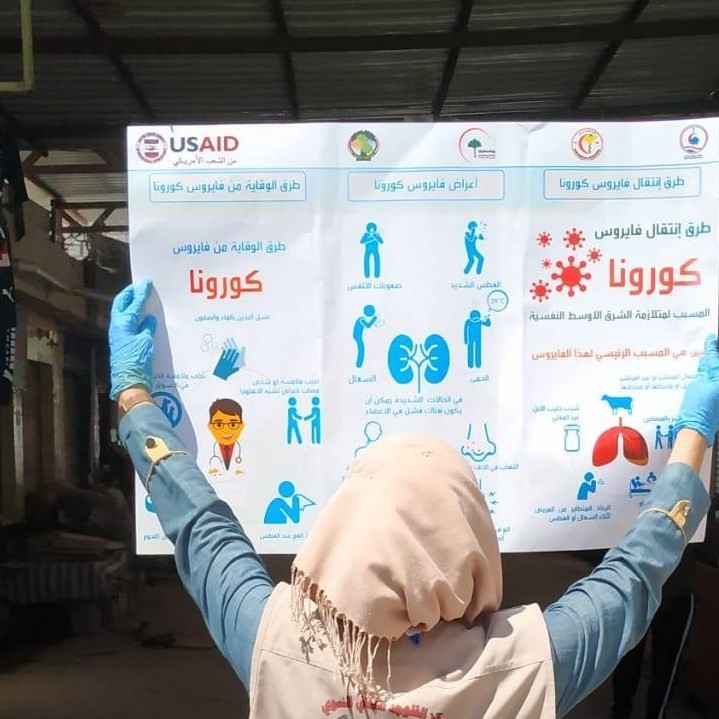Speeches Shim

The United States Government, through the U.S. Agency for International Development (USAID), has provided nearly $60 million to Iraq to combat the COVID-19 pandemic.
These critical investments are working to control the spread of the virus, provide life-saving equipment and medical supplies, and support local stability by building the capacity of local facilities and health workers to manage cases and keep communities safe. This assistance builds upon the U.S. Government’s long-term support to Iraq, which includes more than $70 billion in total assistance over the past 20 years, of which nearly $4 billion were invested in the health sector.
Controlling the Spread
USAID is supporting health care facilities and health workers to identify COVID-19 cases, provide adequate care to patients, and enhance disease surveillance to improve government authorities’ ability to manage outbreaks. Funding is also helping upgrade existing health centers with new equipment, conduct disinfection campaigns, and improve access to personal protective equipment for healthcare workers.
USAID is helping to improve health authorities’ ability to successfully identify, isolate, and refer COVID-19 patients for treatment as well as prevent further infection at primary health facilities in vulnerable communities, including in camps for families displaced by conflict.
USAID is supporting educational outreach programs and distributing essential hygiene kits, as well as more than 400 hand sanitizer stations, and at least half a million masks, to help at-risk communities better protect themselves against the spread of the disease through safe hygienic practices and up-to-date information.
USAID is helping the Government of Iraq and the Kurdish Regional Government’s ability to respond effectively by helping their laboratories prepare for large-scale testing of COVID-19, donating ambulances, and supporting the development of vital public health emergency plans, protocols, and training materials for health workers to trace, control, and rapidly respond to evolving needs.
Promoting Resilience through Community Outreach
USAID is supporting Iraq’s most vulnerable populations, including displaced families and those who have returned home to conflict-affected communities by delivering more than 19,000 food baskets to struggling families and through cash-based transfers to help nearly 80,000 internally displaced Iraqis and 22,000 Syrian refugees meet their critical basic needs.
USAID is funding training programs in communications and media relations with Iraqi government and civil society partners to ensure more accurate information on COVID-19 is shared with the public and to combat the spread of disinformation, particularly in vulnerable regions of the country. Funding also supports health-related public service announcements and awareness campaigns on gender-based violence awareness and prevention. To date, an ongoing series of USAID-sponsored videos encouraging social distancing and other mitigation measures have been viewed more than 7 million times on social media.
USAID is working closely with local partners to build up coordinated, emergency preparedness and response plans across different sectors to ensure that even the most vulnerable communities maintain access to essential items and services. USAID is also providing urgently-needed supplies to health directorates and medical facilities, ranging from hospital beds to privacy curtains and thermometers, masks, and gloves.
USAID is fostering social cohesion by supporting the implementation of COVID-related projects designed by inter-communal youth. Activities include distributing food and hygiene baskets, sewing and distributing masks for everyday use, and developing public awareness campaigns.
Rehabilitation for Stabilization
USAID is supporting efforts by the Iraqi Ministry of Health and local authorities to rehabilitate 12 health facilities and provide modern equipment to help respond to COVID-19. In addition, USAID will rehabilitate the ISIS-destroyed East Mosul Medical Fluid Factory, one of only two facilities of its kind in the country, which will help to restore greater self-sufficiency to the Iraqi medical supply chain.

Comment
Make a general inquiry or suggest an improvement.